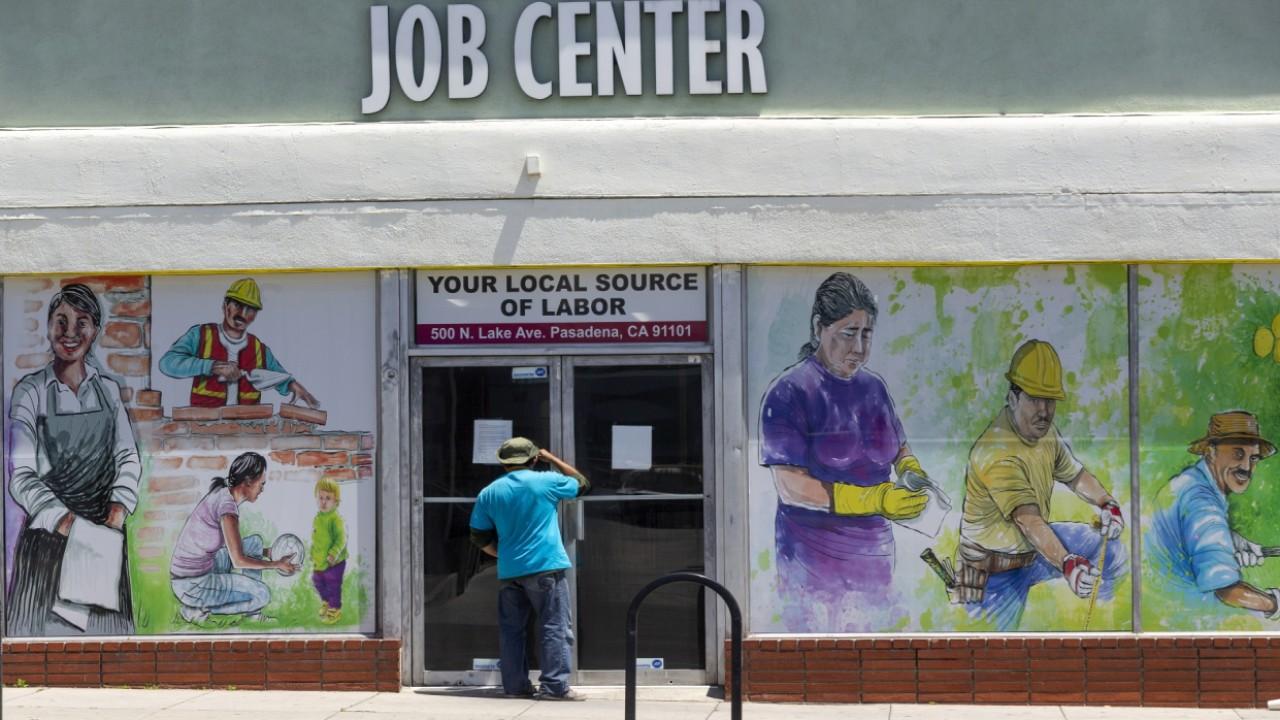More coronavirus job losses are becoming permanent
The August jobs report showed a surge in permanent job losses
A growing number of jobs lost in the early months of the coronavirus pandemic are disappearing permanently.
At the beginning of the virus-induced crisis, about 60% of employers surveyed by ManpowerGroup said they expected hiring to return to full employment levels by the end of 2020. But the company's fourth-quarter survey found that 67% of employers have no plans to rehire workers this year.
"The easier jobs gains are over, and now we'll be battling permanent layoffs once thought to be temporary, bankruptcies, secondary layoffs and maybe major layoffs in the airline industry," said Robert Frick, corporate economist at Navy Federal Credit Union. "Expect that starting this month we'll struggle to drop the unemployment rate as much, and possibly see break-even jobs months and even backsliding."
TRUMP'S UNEMPLOYMENT BENEFIT MAY ONLY LAST 3 WEEKS
New employment figures released by the Labor Department last week show the economy added 1.4 million jobs in August (about 238,000 of which stemmed from the temporary hiring of Census workers) and the unemployment rate unexpectedly tumbled to 8.4%, down from 10.2%.
While it marked the first time since March that joblessness is below double-digits, it's still far from the half-century low of 3.5% seen in February. There are roughly 11.5 million more out-of-work Americans than there were six months ago.
But the report also showed a surge in permanent job losses, which rose by 534,000 to 3.4 million.
"When you pair this with the fact that permanent job losses continue to rise and are now at 3.4 million, everyone should have pause for concern," said Jason Reed, an economist and finance professor at the University of Notre Dame. "Even after four months of positive job gains, we are still below the February job numbers by 11.5 million jobs. We’re well past talking about a V-shaped recovery."
JOB GROWTH OVER NEXT DECADE EXPECTED TO BE SLOWER THAN AFTER 2008 CRISIS
In July, Goldman Sachs projected that unless Congress passed another emergency relief package, only 16% of business owners said they were confident they could maintain payroll. Nearly two-thirds -- 63% -- of small business owners said that less than three-fourths of their pre-pandemic revenue has returned.
Workers are also growing pessimistic about their odds of returning to work: Nearly half of Americans whose families experienced a layoff during the pandemic think the job loss will be permanent — which could mean that roughly 10 million workers need to find a new employer, according to an Associated Press-NORC Center for Public Affairs Research poll.
The threat of permanent layoffs emerges amid a deadlock between White House officials and Democratic leaders over another coronavirus aid package. With no signs of a detente, it's become increasingly likely that lawmakers can't reach a deal before the November election.
At the beginning of August, President Trump signed an executive action partially restoring boosted unemployment benefits by $300 a week (states can choose to chip in an extra $100, though few have agreed to do so). Under the CARES Act, which Congress signed at the end of March, laid-off workers can collect the aid for up to 39 weeks, or for longer in some instances.




















